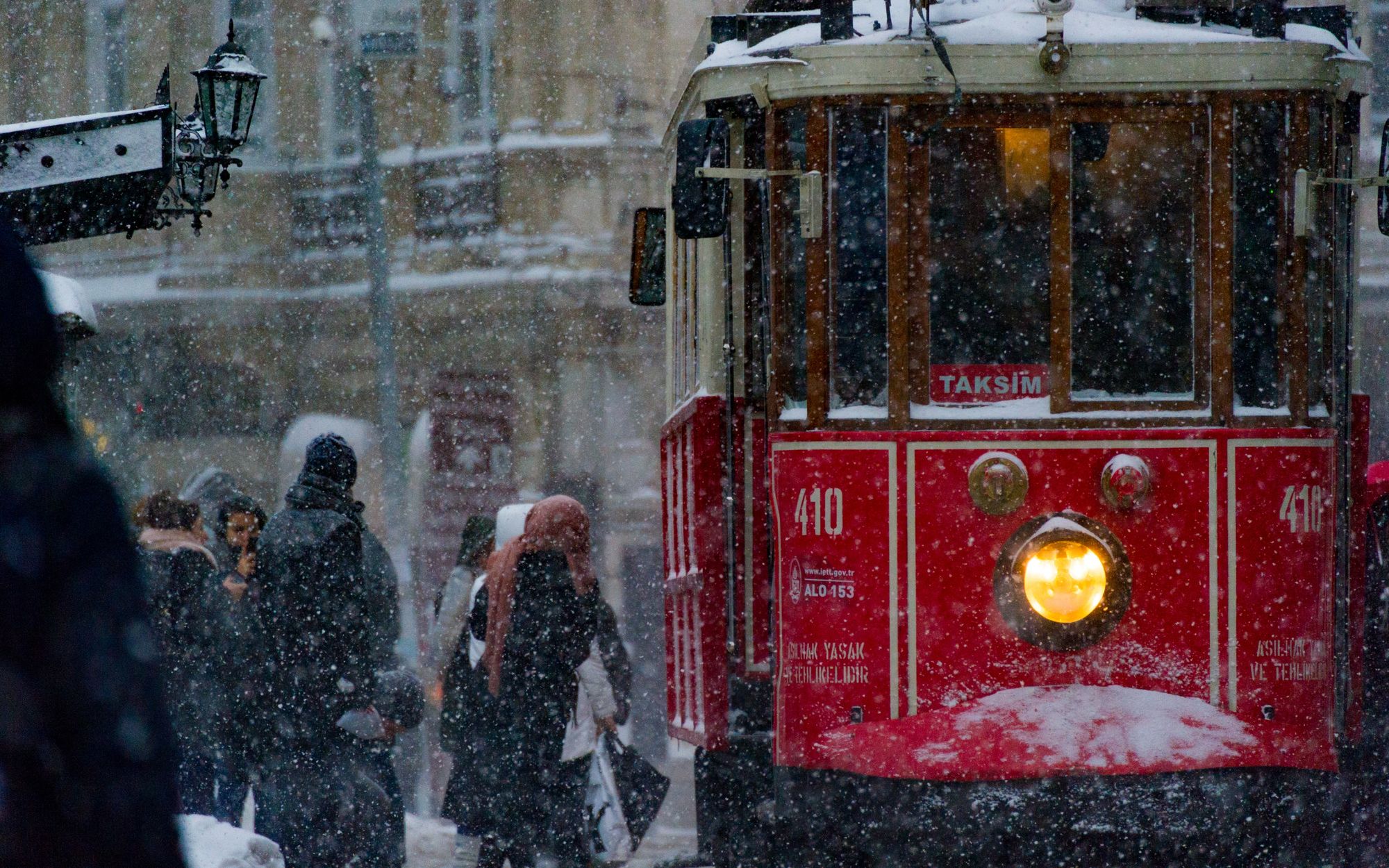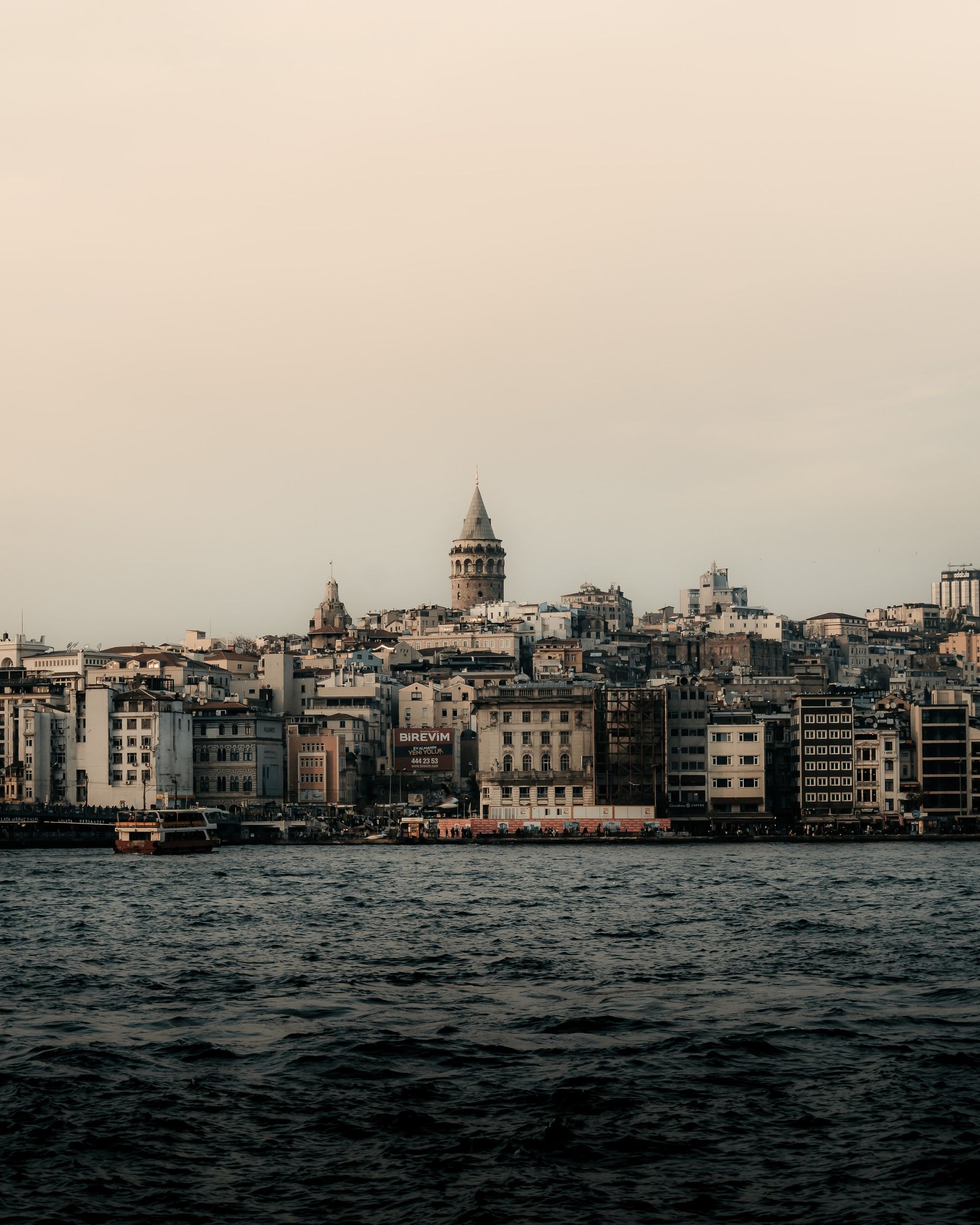This is a first draft of something I wrote last year for a creative writing class run by the wonderful people at Wind & Bones. It may appear at some point in a more refined form.

It’s hard to dress for January in Istanbul. The weather varies wildly, meaning t-shirts in Taksim Square on one day and scarf and gloves in Sultanahmet the next. The snow comes typically late, if at all, and sometimes in abundance, but that year it had fallen dead-on New Year’s Eve and vanished within days. My friends and I in thick coats had danced and cheered on a rooftop, catching snowflakes on our tongues as fireworks exploded in the distance, lighting up the Bosphorus.
Some days later I was working at my desk when I heard another loud bang. It was warm, almost spring-like, and the window to my study was open, to catch the cool breeze coming up from the water. I breathed in sharply at the sound but kept my eyes on the computer screen. I had an urgent deadline and carried on writing, engrossed in an essay on cancer and the ways in which it hides from detection by the immune system. Twenty minutes later it hit me, ‘What the hell am I doing? That was a bomb!’. I grabbed my phone to call a friend, who confirmed what I’d instinctively known.
I’d been afraid of bombs for as long as I’d known fear. When I was five years old, a mafia group exploded two bags on the 904 express train to Milan from Naples, where I lived at the time. It was just before Christmas and the railways were crowded with people going home to the north. I saw the carnage on the news the next morning, blood pounding in my ears as I imagined being vanished without warning; a blinding flash, heat, and then silence.
Every moment of my childhood was lived with this subconscious threat. My stepdad’s job as an engineer in the Air Force meant that we were never not potential targets. Two months before the train attack, the Irish Republican Army had tried to bring down the whole government back home, blowing a hole in the Grand Hotel in Brighton where Margaret Thatcher and her cabinet were staying. They would think little – we were told – of doing similar, or worse, to us.
Often we’d be woken at night by a banging on the door of our house and have to make our way to a shelter, where we’d sit for hours in draughty rooms in our pyjamas. Each time someone prank called in a bomb threat or parked a car somewhere they shouldn’t, we’d be guided through the dark to safety. We’d make light of it then but knew that letting our guard down, even for a moment, could be deadly. Maybe we’d be late for school and rush into the car without first inspecting beneath it with a mirror for wires. Maybe we’d redecorate the pavement; a blinding flash, heat, and then silence. Always being alert is exhausting.
As it happened, my first close call was not with a bomb but an assassination. October ‘89, in the last days of West Germany, a baby and her father were gunned down by the IRA at a petrol station snack bar in an apparently opportunistic attack. Our family's car had pulled off of the forecourt just before it happened. The men who killed them must have seen us, must have seen the number plates that marked us out as Forces. Perhaps they saw three children and decided not to shoot. They said they didn’t see the baby, but it didn’t bring her back.

"Why would you move to a second-and-a-half world country?," an American friend joked when I told him I was packing up for Turkey. "Seriously though, is it… safe?" – "Feels like nowhere is these days," I said, thinking about Paris. It was early 2015 and the growing reach of ISIS was starting to make waves in Europe. I had been to Istanbul for a week the previous summer and fell hard for the lifestyle. People had seemed warm and optimistic for the future of their country, and willing to fight for that future. Their passion was strong and I craved to be a part of it. I found a beautiful apartment in an artsy, international mahalle, a short walk from the sea, and began to build a life.
The first explosions happened shortly before Ramadan, in early June. They were far enough away to not be too concerning, but set in motion a series of events that would fracture the nation. In October, two suicide attackers killed 109 people at a peace march outside the central station in Ankara, just a few hours away. The pain was acute, it was everywhere you looked. Istanbul was bombed many times the following year: once, that January morning, close to the Blue Mosque; once at the airport, where I had not long been to meet my mother from a flight; once in the park I’d walk to daily; and other occasions in between. But the dog still needed to go out, and the laundry and the dishes wouldn’t clean themselves.
I often think about those minutes after the explosion that rattled my window, trying to interpret my reaction. I had been waiting for that bomb for my whole life, in a way. But when it happened, at first, I felt nothing. Decades of dissociating have made it hard to process trauma in a ‘normal’ way. When violence happens people love to say "Stay safe", but I don’t know any longer how safe feels. I'm not sure I ever did.

